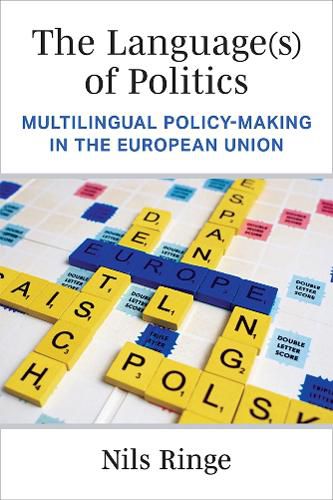Readings Newsletter
Become a Readings Member to make your shopping experience even easier.
Sign in or sign up for free!
You’re not far away from qualifying for FREE standard shipping within Australia
You’ve qualified for FREE standard shipping within Australia
The cart is loading…






Multilingualism is an ever-present feature in numerous political contexts around the world, including both multilingual states and international organizations. It is also an increasingly important reality in a globalized world that consequential political decisions are negotiated between politicians who do not share a common native language. Nils Ringe uses the case of the European Union to investigate how politicians’ reliance on shared foreign languages and translation services affects politics and policy-making. In-depth interviews with almost 100 policymakers and language service providers in the EU’s main institutions, paired with quantitative and linguistic data, show multilingualism to be an inherent, ubiquitous, and consequential feature of EU politics and vividly illustrate how it influences political interactions, deliberations, and negotiations.
Existing research at the intersection of language and politics would suggest that multilingualism makes EU politics more conflictual. This is not the case, however. Instead, multilingualism depoliticizes policy-making, meaning that it reduces its political nature and potential for conflict. That is because both foreign language use and reliance on translation result in communication that is simple, utilitarian, neutralized, and involves commonly shared phrases and expressions, which masks the national and political backgrounds, preferences, and priorities of EU actors. Policymakers also tend to disregard politically charged language because it might not reflect what a speaker meant to say, and they are constrained in their ability to use vague or ambiguous language to gloss over disagreements by the need for consistency across languages.
$9.00 standard shipping within Australia
FREE standard shipping within Australia for orders over $100.00
Express & International shipping calculated at checkout
Multilingualism is an ever-present feature in numerous political contexts around the world, including both multilingual states and international organizations. It is also an increasingly important reality in a globalized world that consequential political decisions are negotiated between politicians who do not share a common native language. Nils Ringe uses the case of the European Union to investigate how politicians’ reliance on shared foreign languages and translation services affects politics and policy-making. In-depth interviews with almost 100 policymakers and language service providers in the EU’s main institutions, paired with quantitative and linguistic data, show multilingualism to be an inherent, ubiquitous, and consequential feature of EU politics and vividly illustrate how it influences political interactions, deliberations, and negotiations.
Existing research at the intersection of language and politics would suggest that multilingualism makes EU politics more conflictual. This is not the case, however. Instead, multilingualism depoliticizes policy-making, meaning that it reduces its political nature and potential for conflict. That is because both foreign language use and reliance on translation result in communication that is simple, utilitarian, neutralized, and involves commonly shared phrases and expressions, which masks the national and political backgrounds, preferences, and priorities of EU actors. Policymakers also tend to disregard politically charged language because it might not reflect what a speaker meant to say, and they are constrained in their ability to use vague or ambiguous language to gloss over disagreements by the need for consistency across languages.